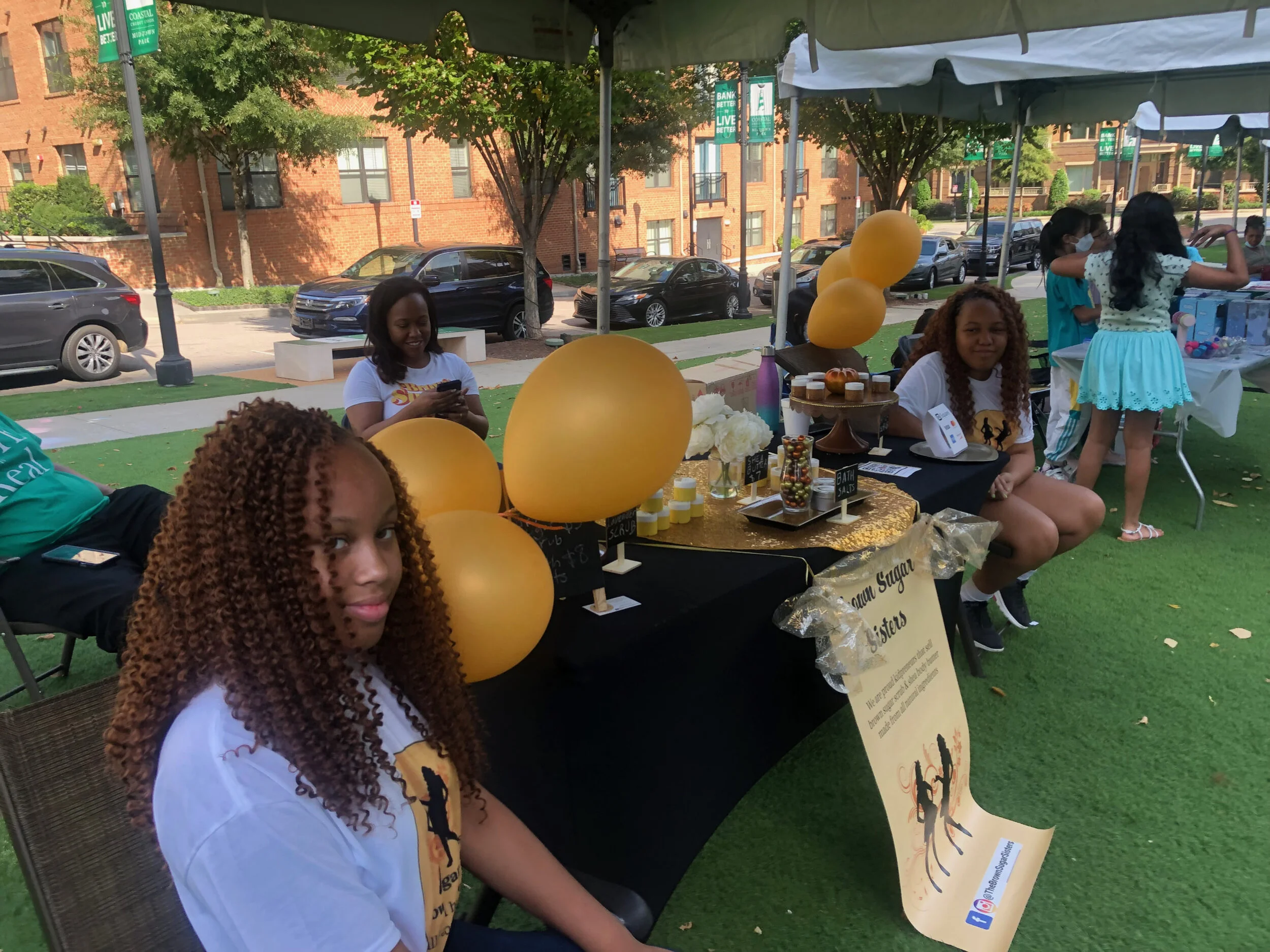Youth business fair sells hope for free markets, spirit of entrepreneurship
Sienna Forrester, 14, left, and sister Savanna Forrester, 13, displaying products from their business, Brown Sugar Sisters, at the Raleigh Children's Business Fair
By Dallas Woodhouse
Despite efforts from the left to bring cradle-to-grave big government to America, dozens of talented entrepreneurs, ages 6 to 14, displayed their keen business sense as part of the annual Raleigh Children’s Business Fair in early October.
This year’s fair featured 40 youth vendors showcasing and selling original items in a market-style setting, presenting one-of-a-kind products developed, created, and marketed by the young people. Some hot-selling items included gourmet foods, colorful hand-knitted scarfs, art, greeting cards, bath salts, beauty products, and comic books.
The fifth annual Raleigh Children’s Business Fair, hosted by the John William Pope Foundation, returned to Raleigh after a hiatus in 2020 because of the pandemic. The fair is part of a national program created by Acton Academy, with the goal of offering a safe and fun entrepreneurial experience.
First held as a one-time event in Austin, Texas, the program grew, and today’s fairs are held around the world and across North Carolina. This is the fifth fair hosted by the Pope Foundation.
Blake Ackiss, who is 11 and a fifth-grader at Combs Elementary, developed a successful business designing, making, and selling paracord bracelets.
Blake told Carolina Journal he’s learning “salesmanship” and is making “good contacts” to help further grow the business he started with his brother. The two competed in a previous fair and have refined their products since.
They named their business Bash Brothers after former major leaguers Jose Canseco and Mark McGwire, both prolific power hitters.
The students compete for customer dollars and for awards. Students are judged on customer service, originality, and potential for market success. Market success is judged on appearance, sales strategy, market knowledge, and scalability.
The Brown Sugar Sisters showcased popular apple and lavender bath salts and body scrubs, as well as coconut body butter. Sienna Forrester, 14, and her 13-year-old sister Savanna create the products from scratch.
Thirteen-year-old Cyrus Barbour and his 8-year-old sister Isis design Anime T-shirts. Customers could also pick up their novelty “slime” and silly string. Isis was quick to point out that she’s learning “how to make money” and about what to do better next time.
The adoption of a rescue pet, a little dog named Josie, spurred 13-year-old Anna Barbour (no relation) to create Watercolors for Wags.
“This is my business, and I am selling watercolors,” she said. “I have bookmarks for a dollar, greeting cards for $2, quote cards for $3. All the profits go to Saving Grace Animals for Adoption. You can place personalized orders, and we will ship them to you.”
Anna told CJ that starting her business helped her to understand perseverance. “It is hard sometimes, and so you have to keep going, even though it’s hard.”
Sixth-grader Molly Wilkins and her fourth-grade sister Zoey are talented young artists who created Pour Girl designs. They hand-paint canvases, design earrings, and sell vases.
“I am learning how to interact with people without being a little pushy,” said Molly.
“I think they are doing a great job,” says proud mom Grace. “I think they are learning responsibility. I think they are taking ownership for something as they are creating.”
The John William Pope Foundation makes grants to improve the well-being of North Carolinians by advancing the ideas of limited government, individual freedom, personal responsibility, and strong communities. The foundation’s grants are focused on public policy, education, the arts, and human services. The foundation is a supporter of the John Locke Foundation, the parent company of Carolina Journal.
The Raleigh Children’s Business Fair is just one of many charitable endeavors the foundation supports to foster free-market economics under the foundation’s belief that “under the rule of law, a free-market economy is the best conduit to bring the greatest prosperity to the most significant number of people. A free and prosperous nation cannot function without individual responsibility and initiative.”



